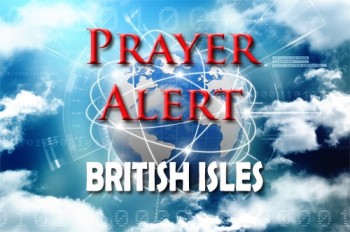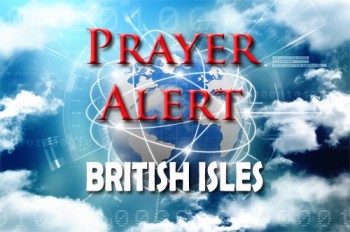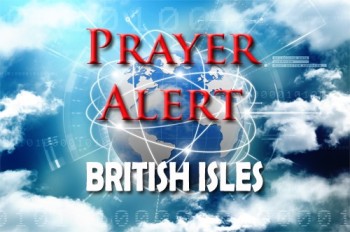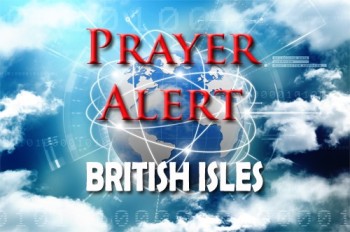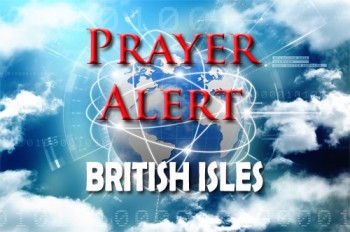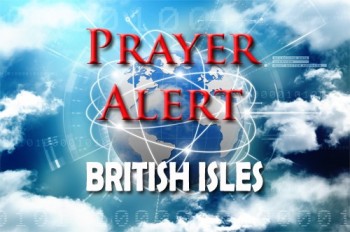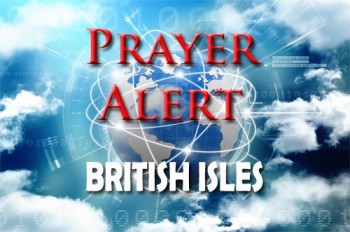Displaying items by tag: disability
Africa / Philippines: 87,000 Bibles given to disabled children
A new partnership between CURE International and Biblica is set to distribute over 87,000 Bibles in 22 languages to families receiving free surgical care at children’s hospitals across Africa and the Philippines. These hospitals, run by CURE, offer operations for conditions like spina bifida and hydrocephalus. The initiative brings physical healing and spiritual hope, rooted in CURE’s founding mission inspired by Luke 9:2 - to preach the Kingdom of God and heal the sick. CURE has performed over 330,000 surgeries and shared the Gospel with over 2.1 million people since 1996. Biblica’s role is to ensure Scripture is available in the heart languages of the patients. The collaboration addresses deep spiritual and cultural challenges, including widespread beliefs in curses and witchcraft surrounding disability. Through intentional ministry, Bible distribution, and community connections with local pastors, CURE is seeing lives transformed as parents witness healing and turn to faith. This $500,000 effort is a striking example of Kingdom collaboration bringing the light of Christ to the most vulnerable.
Taxpayer-funded cars removed from 11,000 benefits claimants
The Motability scheme, which provides cars to disabled people in exchange for disability benefits, has removed over 11,000 vehicles since 2022 due to misuse. Cases of abuse, including sub-leasing cars, running taxis, or food deliveries, have risen from seven to 15 per day. Motability Operations attributes this rise to an increase in eligible customers, from 650,000 in 2022 to 815,000 in 2023. Disability rights groups defend the scheme, calling it life-changing for many. However, critics argue the system is exploited by friends or family of claimants. Motability Operations is reviewing the number of drivers per vehicle and increasing tracking to counter misuse. Some accuse claimants of freeloading, but recipients highlight rigorous eligibility criteria and the necessity of these vehicles. Experts emphasise the scheme's value, with fraud in the Personal Independence Payment (PIP) system reportedly at zero.
Australia: severe medical conditions affect success of visa applications
When Luca was born in Perth two years ago, his parents were devastated by his diagnosis of cystic fibrosis. Australia's strict immigration policies then compounded their distress by denying their permanent residency, deeming Luca a potential financial burden due to his medical condition. Australia, which prides itself as a ‘migration nation’, routinely rejects visas if medical costs exceed A$86,000 (£45,000) over ten years. Despite having lived in Australia for eight years and filling crucial job roles, Luca’s parents face the possibility of deportation – an example of the policy’s harshness. The government has defended the law, but it is surprising that its own immigration act is treated as exempt from its disability discrimination act. The immigration minister has mentioned the possibility of ministerial intervention for affected children, yet the process is often gruelling. Campaigners argue this policy is discriminatory and outdated, and are pushing for reform.
Plans to make UK world's most accessible country
The Government has announced a comprehensive Disability Action Plan to make the country the world's most accessible for disabled individuals. This initiative outlines 32 specific measures, including ensuring disabled children have access to local playgrounds and improving access for guide dog users. Over 1,300 disabled individuals, their families, and stakeholders contributed insights to the plan. They highlighted the necessity for enhanced emergency protection for disabled people, suggesting mandatory protocols like visual fire alarms and tactile signage.The plan also focuses on making public spaces, including toilets, playgrounds, and transportation, more inclusive. A new working group will advise on supporting guide and assistance dog users. The Government has also revised its approach towards a proposed Disability Enabled Badge, opting first to better understand disabled people's needs. Mims Davies, minister for disabled people, said that the plan aimed to create an equal and accessible living environment for all.
1 in 9 British children are disabled
Official data indicates that diagnoses of mental health and behavioural conditions such as ADHD and autism have risen sharply post-Covid, affecting one in nine British children. The number of children classified as disabled has increased by over a third since the pandemic, reaching 1.6 million. This includes a 144% increase in children receiving benefits for behavioural disorders. In 2021-22, 11% of children reported a life-limiting condition lasting over a year, up from 8% in 2019-20. The DWP reports a 69% rise in disability benefits claims for children in the last decade, with a 17% increase since Covid began. Child disability payments, now at £3 billion, are projected to hit £5 billion by 2030. Over 650,000 children receive disability allowance, with nearly half for learning disabilities, which have surged by 37% in five years. Behavioural disorders like ADHD have more than doubled, affecting around 140,000 children. Experts attribute these trends to factors like increased awareness, lockdown effects, and changing definitions of mental health issues. The government acknowledges the heightened awareness of these conditions, and says it is committed to a balanced welfare system.
Charities' anger as government 'downgrades' disabilities minister role
Charities have expressed outrage as the Government demoted the disability minister role - during Disability History Month. The vacancy arose when Tom Pursglove became legal migration minister. Mims Davies, the new appointee, will maintain her focus on social mobility from her previous role as minister for social mobility, youth, and progression. Disability charities criticised the move, highlighting it as the longest gap without a minister in thirty years. Downing Street refuted claims of downgrading the position, insisting that a minister for disabled people would remain. However, the charities argue that the minister should not have divided responsibilities and demand the restoration of a dedicated minister of state. James Taylor from Scope emphasised the need for a full-time leader for disability strategy in government. The National Autistic Society's Tim Nicholls called for clarity on the role's scope and reassurance that disabled people's needs are a priority. Meanwhile, a government spokesperson stated that Davies would continue supporting disabled people, noting achievements in employment and financial aid for the disabled.
Disability History Month
Disability History Month runs from 18 November to 18 December every year. It is supported by many disability groups, unions, and voluntary organisations, who aim to promote disabled people's rights and their struggle for equality now and in the past. Every year the month focuses on a different theme - celebrating achievements and fighting for equality. For instance, 14-year-old Jonathan is non-verbal and a wheelchair user who was in a special school until his mother taught him to read and write by eye pointing on a perspex E Tran and eye gaze software. Jonathan went to a mainstream primary in Year 5. When he was twelve, he wrote the book 'Eye Can Write' and set up a charity. Pray for continued backing and funding for all those sharing resources to help people with disabilities, and helping able-bodied people to understand the struggles that disabled people have.
Communicating with deaf people when wearing masks
Wearing face masks in shops creates massive communication barriers for deaf people who lip-read. The group Deaf Connect have produced cards which deaf people can carry round, asking people to remove their masks when they are speaking to them. Action on Hearing Loss is advising the general public to remove their masks, make sure they face the person they are speaking to and recommend speech-to-text apps. Janice Silo from Signs of God told Premier Christian Radio that lip-reading people wearing masks is impossible. She said, ‘Sometimes we ask people to write things down and they behave as if that is beneath them. Like they'd never heard of paper and pencil before! But writing stuff down is really useful. Also, when coronavirus is finished and we don't have to wear masks any more, please continue what you've been doing, being patient and writing stuff down.’
‘We celebrated Down’s syndrome diagnosis’
When Rachael Prescott was expecting twins she was advised six times to abort them after they were diagnosed with Down’s syndrome. She was inundated with condolences and health scaremongering because they also had heart conditions. Doctors were more concerned that the children might have Down’s syndrome than with their cardiac situation. They were pressurised for genetic testing and abortion. The Prescotts refused the tests and Charlotte and Annette had Down’s syndrome, but only Charlotte had a heart defect. Rachael said, ‘We hope in the future to direct expectant parents away from false preconceptions and towards what we have found to fill us with so much joy. We celebrate our twins.’ See also world article on abortion deaths.
Universal Credit benefits
Since its introduction, Universal Credit (UC) has made things harder for people receiving it. Now, a court ruling has made it possible for 13,000+ disabled people to receive backdated benefit payments. People who moved from the severe disability benefit to UC, which rolls six payments into one, will receive backdated payments of up to £405 per month alongside the UC benefit. The work and pensions secretary said that claimants who had been entitled to the severe disability premium would be given ‘ongoing transitional payments’ as they moved across to UC, and those who had already moved to the new system would be eligible for backdated payments. While we can thank God for this change, we can continue praying for other support packages which need re-assessing and addressing, including dementia care and undiagnosable illnesses that do not fit into any recognised medical category but still need support with training, transport, supervision, and personal care.

